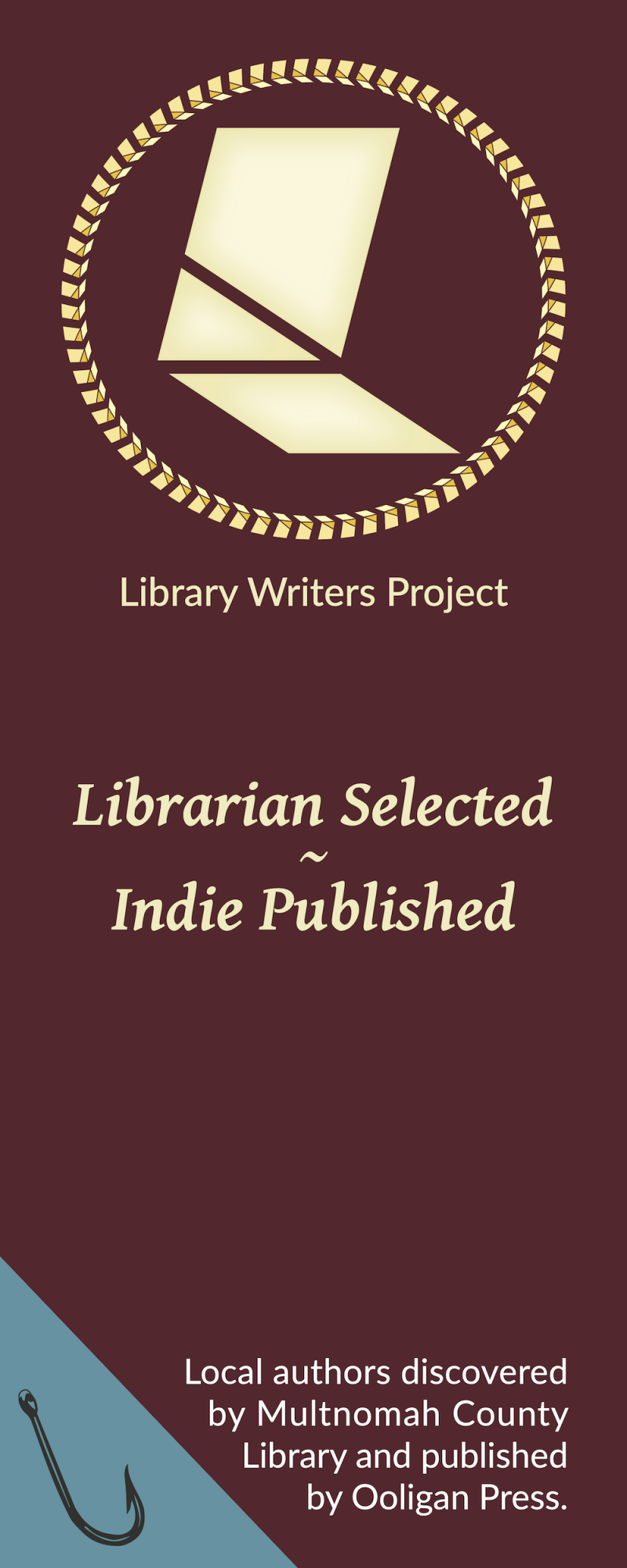Although there is still some controversy over whether listening to an audiobook is a comparable experience to reading a book, the furor that arose when ebooks launched has mainly subsided. Many American readers are comfortable switching between electronic text and hard copies to read their books, depending on the context and the purpose of the material. Ebooks have not replaced print books, despite dire predictions—ebook market share has stayed under 30 percent, depending on the genre. For most publishers, print copies (including those produced through the print-on-demand model) are released around the same time as ebooks. Many self-publishers, however, only release ebooks.
So what’s the big deal about bringing an ebook to print?
Ooligan Press has been working on learning the answer to that through its partnership with Multnomah County Library (MCL). Every year, MCL’s Library Writers Project (LWP) is open to local Oregon authors for submission of their self-published works, and the top entries are chosen by librarians and acquired for the MCL collection as ebooks.
In 2018, Ooligan Press began coordinating with the LWP to annually choose the best book to take through the traditional publishing process and bring to print. There are many qualifications we at Ooligan look for: circulation numbers, stand-alone status, and subject matter. The first book we selected in 2018 was the literary fiction title The Gifts We Keep by Katie Grindeland, which Ooligan then published in April 2019. The next selection was Iditarod Nights by Cindy Hiday, which will be published on April 14, 2020.
Each of these books went through another editing process with the Ooligan team, during which language was refined and character arcs were tightened. The editors and authors put time and consideration into developing the stories and communicating with each other. Ooligan staff then had to design the cover and the interior layout, proofread the interior, research and design a marketing campaign, negotiate with printers, distribute review copies, update all the data in catalogs, and promote the launch event. Along the way, we considered the following questions:
- How does this benefit MCL? It makes available for loan quality print versions of titles that have already proven popular as ebooks. The copies of The Gifts We Keep flew off the library’s display shelves within a week of launch in April 2019. Staff and readers were excited to see a title they enjoyed being validated and made more accessible through print publication. Many library patrons who didn’t read ebooks were now able to read a popular title. (Addressing accessibility issues is a core value of most public libraries, and not everyone can read ebooks, for various reasons.)
- How does this benefit the author? Renewed attention to a previously published book means more readership for less time invested, and the boost in sales for an established title means it is more likely to eventually earn royalties, along with possible interest from agents and publishers if the author writes more books in the future. If the author has other published titles, there is often an increase in circulation of those titles too.
- How does this help Ooligan? The students at Ooligan Press generally move through the program in two years, while the average title at Ooligan takes around a year and a half to publish. Because the LWP titles require less time for development, they can be turned around in closer to a year, making it easier for students to follow the whole project. MCL also provides a guaranteed market for these titles, and the sales benefit the program because an audience is already established. This is also better for the environment, as there is less chance of wasting paper by printing too many copies. Ooligan also sees an increase in circulation of other backlist titles as a result of this partnership. Data is still being gathered on whether there is a circulation change specific to the library’s other LWP titles.
It’s a win for everyone—the best kind of happily-ever-after. Here’s to smarter printing and partnerships with libraries! Want to know more? See what the Library Journal said when the partnership began.

